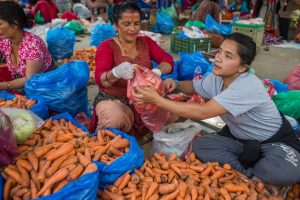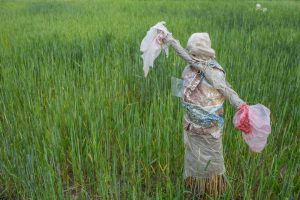
With the start of Tihar, Nepal’s annual festival celebrating flowers and lights, markets across the country are now teeming with banned plastic flowers. These artificial blooms are overshadowing natural flowers, causing concern among authorities and citizens alike.
Nepal’s government has placed a nationwide ban on the production, import, and sale of plastic flower garlands. However, major cities, including Kathmandu, Birgunj, Hetauda, Janakpur, Biratnagar, Butwal, and Nepalgunj, continue to display plastic flowers prominently in shops. This has led several municipalities to issue notices and warnings, aiming to enforce the regulation.
In Kathmandu, the city government issued a statement on Thursday declaring strict measures against plastic and plastic flower garlands. The notice announced a ban on single-use plastic items, plastic flower garlands, and plastic bags thinner than 40 microns. Violators face penalties, including fines of up to Rs 50,000, based on the scale of the offence.
Other municipalities, such as Rampur Municipality in Palpa, Thaha Municipality in Makwanpur, and Dhangadhi Sub-Metropolitan City in Kailali, have also issued similar notices restricting the sale and distribution of plastic flowers and garlands.
Persistent challenges in implementation
Despite these regulations, the plastic flower and bag trade has continued to thrive across Nepal. Several municipalities, including those within the federal capital, have repeatedly issued warnings, but plastic products continue to be available in marketplaces, particularly around festive times.
The government initially banned plastic bags in the Kathmandu Valley on April 14, 2015, prohibiting bags wider than 20 inches, longer than 35 inches, or thinner than 40 microns. In 2019, the Ministry of Forests and Environment re-emphasised this restriction as part of a 100-point plan, banning plastic bags under 40 microns in urban areas and under 30 microns in rural areas.
Likewise, the Department of Environment, in a nationwide decision on August 17, 2021, attempted to restrict the use of plastic bags thinner than 40 microns, but the measure failed to achieve effective implementation. In 2022, the federal government approved the Plastic Bag Prohibition Plan 2022, and on July 17, 2023, it issued a complete ban on the production, import, sale, and storage of plastic flower garlands across the country.
Customs department denies plastic flower imports

The Customs Department has maintained that no plastic flowers or garlands have entered Nepal through formal channels since the ban. According to spokesperson Muktiprasad Shrestha, inspections at all entry points ensure that banned items do not pass through customs legally.
“Since the ban, no plastic flowers or garlands have entered Nepal via formal trade routes. However, due to our open borders, illegal imports may still reach the market,” Shrestha explained. Officials admit that even though the District Security Coordination Committee conducts joint inspections in border districts, enforcement challenges have allowed plastic flowers to continue entering Nepal through unofficial routes.
Border security and enforcement efforts
Meanwhile, the Armed Police Force (APF), responsible for border security and customs inspections, has stated that it is working diligently to prevent the smuggling of banned items. APF spokesperson DSP Shailendra Thapa reported that officers stationed at border checkpoints are conducting strict inspections.
“The APF is rigorously inspecting all goods at border points, and any shortcomings among security personnel will be addressed,” DSP Thapa assured, responding to concerns that banned plastic flowers continue to cross into Nepal despite restrictions.
Plastic flower imports exceed Rs 20 Million

Despite the ban, plastic decorative items, including flowers and bouquets, have seen continued demand. In the fiscal year 2023-24, Nepal imported plastic decorations worth over Rs 29 million, amounting to 56 tons. While these items come from around 20 different countries, China and India are the primary suppliers of plastic decorative materials.
In contrast, natural flower imports totalled Rs 270 million during the same period. Customs data shows that in 2023-24, Nepal exported floricultural goods worth Rs 1.02 million, while imports exceeded Rs 270 million.
This demand for plastic flowers during Tihar, a holiday that traditionally celebrates nature and flowers, is raising questions about the effectiveness of bans and the need for better public awareness and policy enforcement.
With Nepali municipalities ramping up efforts to enforce restrictions, the government faces a crucial challenge in ensuring that natural flowers take centre stage this festival season, honouring both tradition and environmental responsibility.























